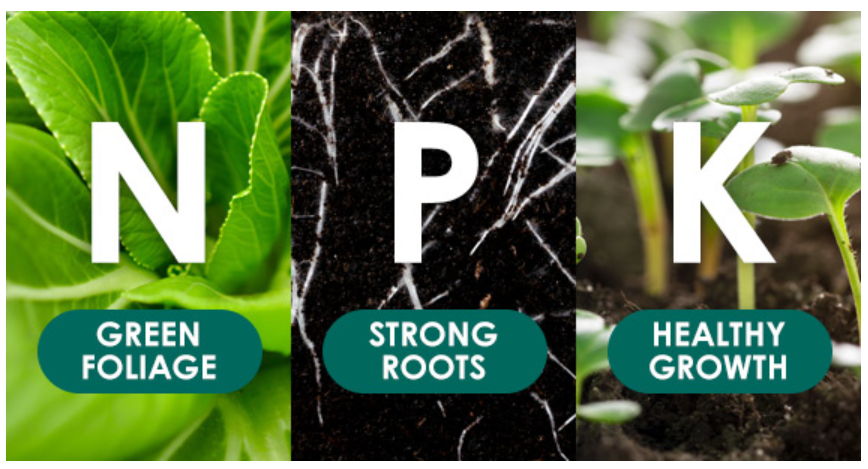The NPK values on fertiliser bottles state the weight percentage of the three basic elements necessary for plant growth and development.
- N stands for nitrogen, fundamental for any plant. Nitrogen is the basic building block of proteins and chlorophyll, necessary for photosynthesis.
- P stands for phosphorus, necessary for root, bud and flower development. Phosphorus is indespensable in ATP - the energy unit of the plant. Plants also use it to form DNA and RNA, the guide for cellular growth and creating compounds necessary for growth and fruiting.
- K stands for potassium, which makes the plant firm and more resistant to diseases and infections. Plants use potassium to transport water, nutrients and carbohydrates. It’s also necessary for healthy plant respiration.
Fertilisers containing N, P and K (also called NPK fertilisers) are the fundamental nutrition for plants.
What is the composition of the NPK fertiliser, and how to understand the specific NPK values of the fertiliser?
For example, if a fertiliser has NPK 6-8-6 on the label, you know that from its total weight, 6% is nitrogen, 8% is phosphorus, and 6% is potassium.
NPK fertilisers are also known as multi-nutrient or complete fertilisers. Single or double fertilisers contain one or two components.
Single component fertilisers provide an extra supply of nitrogen, phosphorus or potassium for the plant. The number on the fertiliser bottle states the weight percentage as well. For example, if your plants are yellowing, stop growing and appear very weak, try the BioNova N 27 - the extra dose will treat the deficiency in the blink of an eye.
The most notable among the two-component fertilisers are PK fertilisers used to stimulate root system development and flowering. If you want to support the plant to give you the harvest of your dreams, try the BioNova PK 13-14.
When to use an NPK fertiliser?
- Indoor growers use NPK fertilisers profusely during the entire growth cycle. Plants growing indoors don’t have access to many nutrients, and the soil can’t naturally restore itself and gets depleted quickly.
- Outdoor growers use NPK fertilisers in the spring before planting and in the first weeks of vegetative growth. It’s necessary for smaller spaces which are used repeatedly. Even the rich garden soil will get depleted after supporting the previous harvest.
Picking the right fertiliser is the first step to the harvest of your dreams. If you have any questions, don't hesitate to ask. We're available at info@higarden.eu.
We recommend:
